There have been lots of opinions across the political spectrum since POTUS decided to withdraw a few special forces troops from the Turkish border in NE Syria. A lot of Deep Staters and globalists were flailing about with their ridiculous comments condemning that change in policy after it was announced that ISIS top-dog and “austere religious scholar” al-Baghdadi killed himself rather than being captured by US forces during a surprise raid.
Some email pals relayed this report from a friend who is Greek and teaches in Kurdistan and has friends worldwide to whom this assessment of the situation in northern Syria was disseminated. Now I can’t vouch for the veracity of this report, but I would wager that it’s at least as valid as those of the likes of Max Boot and any other anti-Trump commentator on CNN or MSNBS, let alone among the Uniparty in Congress:
Update on situation here!
Here is President Trump’s unbelievable and genius move in Syria! By pulling the troops out of Syria, Turkey invaded Syria and assaulted the Kurds. Russians sent an envoy to Damascus to make a deal between the Kurds and Syrian government to unite them against Turkey. Iran is not happy the Turks are in Syria and brought their troops to the border of Turkey. Germany hits Turkey with sanctions.
Do you see what a chess player Trump is? As long as U.S was there, those forces were united against U.S. He is putting these former allies against each other and they neutralize each other and didn’t cost U.S. anything. Formerly, Turkey, Iran, Russia and Syria were united against the US. Europeans were not involved and were enjoying [the] US protecting their interests, but now they are busy fighting for their interests.
It’s good for Israel because Iran has to defend Syria against Turkey instead of focusing on harming Israel. Three enemies of Israel: Iran, Turkey and Syria are facing off against each other. This invasion is gonna cost Turkey a lot! So it brought unity between Syria and Kurds, and division between Russia, Turkey and Iran. This is just unbelievable what President Trump is doing! This guy is a genius.
Here is another view of the Turkey-Syria situation, which is quite possibly the way that POTUS sees it, too. POTUS has maximum economic leverage that can be used should Turkey attempt some “ethnic cleansing” against the Kurds, too.
Erdoğan may believe striking a blow against Kurds while confiscating their oil is a win for Turkey, but he is wrong: He is simply opening the door for a war of attrition that Turkey cannot afford and which it ultimately might lose. While Erdoğan has threatened to send troops into the Kurdish-governed area more than a dozen times before, this time he appears serious:
His economy is teetering, he suffered a blow to his prestige when the opposition party won Istanbul twice, and he is in desperate need of a distraction. Erdoğan may talk about a terror threat emanating from northern Syria, but he has yet to prove that one exists. Quite the contrary: Not only were Syrian Kurds the most effective indigenous fighting force against the Islamic State, there is also overwhelming evidence that Turkey cooperated, profited from, and at times coordinated with Syria’s Al Qaeda affiliates and the Islamic State.
Read the rest here.
Let’s take a deeper look at the problem. This is a complex no-win situation for US policies in the region. While the Kurds may be good allies (less the Communist-oriented PKK), the Kurds’ separatist nationhood aspirations – rebelling against a series of empires for centuries – have made them despised by Turkey, Iran/Persia, Iraq, and Syria. Add Armenia too, since Kurdish hill tribes perpetrated some of the worst atrocities against defenseless displaced Armenian women, children, and old men who were railroaded in cattle cars by Ali Pasha’s Turkish troops and stranded into the wastes of the Syrian Desert in 1915.
The Turks also hate being reminded that Saladin (Salah-ed-Din) the Conqueror who defeated the Crusader kingdoms in the Levant in the 13th century was not a Seljuk Turk at all, but a proud Kurd. Some of the best viziers and janissary generals of the Ottoman Empire were originally Kurdish boy recruits.
There are about 40 million ethnic Kurds, most of them in 3 southeastern Turkish provinces, and about 7 million in northern Iraq, a slice of Iran, and a few villages in the Euphrates Valley of northeastern Syria. The Kurdish areas in northern Iraq (Kirkuk, Zakho, Irbil, Sulaymaniyah, and parts of Mosul province) since 1991 are the closest the Kurds have reached to a sovereign independent state since a brief Kurdish Republic was declared in northern Iraq in 1919-1922. Despite the pretenses in Baghdad, you probably will not see a single Iraqi flag in this area, but instead always the red-white-green-with-sunburst Kurdish national flag everywhere.
Turkey, Iraq, and Iran have always feared that an independent Kurdish entity in northern Iraq will be a base for Kurdish nationalist uprisings in surrounding areas of Turkey, Syria, Iraq, and Iran. Despite promises by the Iraqi Kurds of Barzani and Talabani, that has proven to be pretty much the case since Desert Storm in 1991, drawing frequent Turkish search-and-destroy incursions.
The YPJ fighters (Kurdish Women’s Protection Units) that were the main instrument of the US-sponsored victory against the ISIS/Da’esh Caliphate in Syria are composed mainly of the far-Left Marxist PKK (Kurdish Workers’ Party) separatists who have been fighting the Turkish army and police with brutal rural insurgency and urban terrorism since the early 1960s.
The bloody toll of young Turkish army and police draftees over the years – usually blown apart in remorseless ambushes and bloody urban car-bombs – actually has made the Ankara governments’ counterinsurgency efforts against the Kurdish guerrillas a popular cause with most non-Kurdish Turks, both before and after Erdogan came to power.
Turkey has conducted frequent aerial bombing and major incursions (divisional-size or even larger) into pockets of Kurdish guerrilla bases in northern Iraq almost yearly, and even into Iran during the Shah’s era. A major Turkish military incursion into northern Syria would not be unprecedented. Turkey also has advocated the establishment of an up to 50 km-deep “cordon sanitaire” along the Syrian-Turkish border (all inside Syria) since early in the Syrian civil war that began in 2011, even before Da’esh and the most radical Islamist fundamentalists took over the anti-Assad Syrian fighters’ organizations.
Until now the Turkish security belt inside Syria has not been endorsed by the US, but that may now change to face the realities of the conflict on the ground and thanks to the President’s new policy. Turkey has also vowed loudly and consistently since 2011 that it would not allow a new independent Kurdish quasi-state (especially under the Marxist PKK/YPJ) to be established in northern Syria, as this base eventually would support renewed Kurdish insurgency inside Turkish areas across the little-regarded frontier.
Note that, despite the crocodile tears being shed by various Uniparty and globalist types in the US and elsewhere, this would be far from the first occasion that the Kurds have gone quickly from valuable US allies to cynical collateral roadkill of regional power politics. In 1988, 1991, and 1995, powerful US forces throughout the region did nothing as Saddam Hussein’s Republican Guards and secret police crushed Kurdish political organizations, defeated Kurdish militia, devastated Kurdish civilian villages, and disappeared Kurd politicians and military leaders. There was nothing to be gained politically during those atrocities!
Turkey has the second-largest armed forces in NATO, occupies a strategic position between Europe and the Middle East (politically, ethnically, culturally, and religiously as well as geographically), and has the potential to be a peacemaker and stabilizing influence in the Middle East and Central Asia (not to mention in Europe, as he has threatened to unleash a flood of immigrants to the EU as leverage). The Turkish military traditionally have been pro-US and pro-NATO (Russia is a visceral millenary enemy), except for hated Greece.
Now, Erdoğan has become a despotic autocrat with Islamist pro-Muslim Brotherhood tendencies, a course that conflicts with many US interests. And sucking up to Russia for S-400 SAMs and Sukhoi fighters may be just the temporary tantrum of an egotistical enfant terrible unhappy with the goodies he can get from Uncle Sam, but he is casting a very dangerous division within NATO and exposing the Alliance’s southern flank.
What is most ominous about abandoning the Kurds in northern Syria to the tender mercies of the Turkish army is that the Kurdish forces administer and control camps of 50,000 or more refugees from the ISIS Caliphate areas of Syria like Raqqa and northwestern Iraq. Not all of these are women and children, and loyalties to ISIS’ murderous agenda apparently still run strong, notwithstanding the death of Al-Baghdadi and his number two. The Kurdish Pesh Merga’s camp security forces probably would move out and abandon them in order to face the invading Turkish forces. This means that the ISIS loyalists in the camps would be free to make their way to enclaves of ISIS jihadis still scattered through eastern Syria and northwestern Iraq, revitalizing the movement and its threat to both America and to governments in the region.
Although the Turkish incursion of Syria may be sustained off and on over years, it is highly likely that Turkey would withdraw its army from northern Syria if it gets bogged down into a Vietnam-style counterinsurgency against the Kurds and Islamists like Da’esh. And that’s not taking into account any US economic sanctions that would be immediately implemented by the Trump Administration as the President has already threatened.
On the other hand, many of the border districts on the Syrian side feature productive farmland and abundant water resources in the Euphrates and Tigris River valleys – perhaps a nice rich area to annex into Turkey permanently. In addition, whether Kurds or Arabs, the local inhabitants probably don’t have any great love for Bashir Al-Assad’s central Syrian government in Damascus and might see a better future with Turkey.
There are a lot of moving parts, shifting loyalties, long-standing ethnic enmities, and other factors that are in play, and the elephant in the room that has been stirring up mischief in the region since 1979 is the Islamic Republic of Iran. That’s one reason that the in-theater commentary cited at the beginning of this article resonates with me. We shall see what happens!
The end.
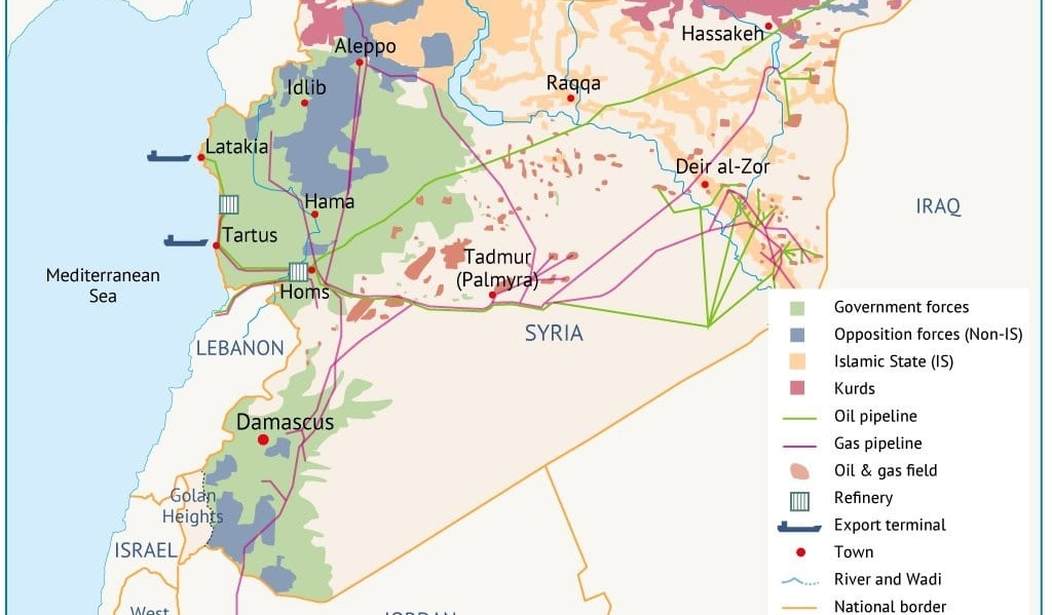




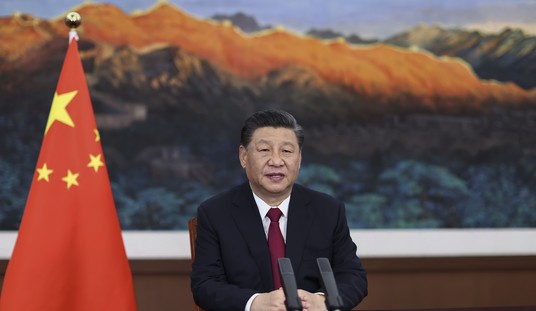
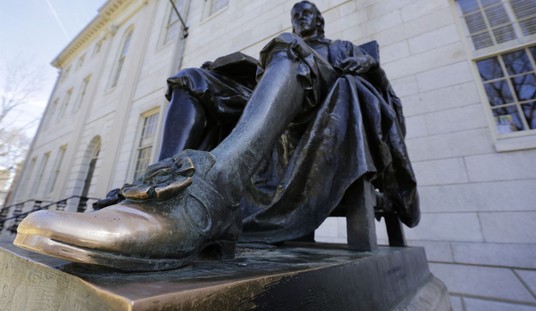

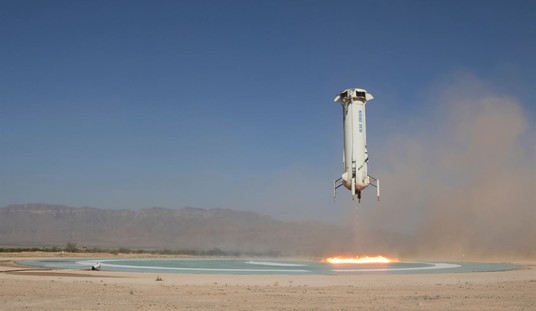



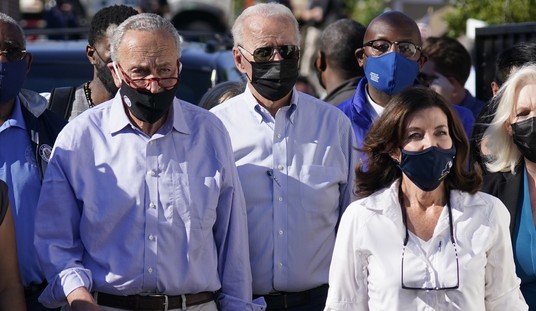

Join the conversation as a VIP Member